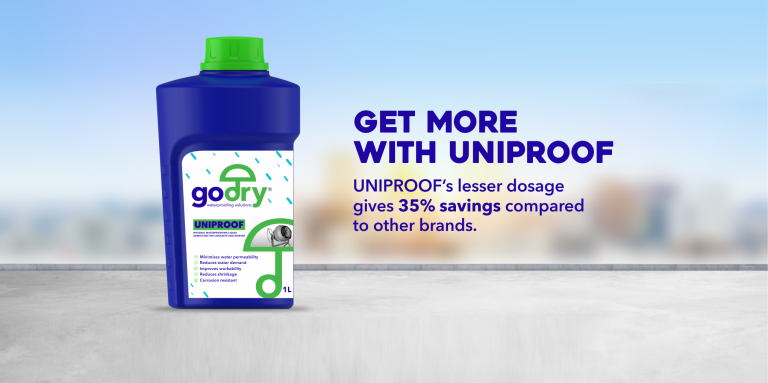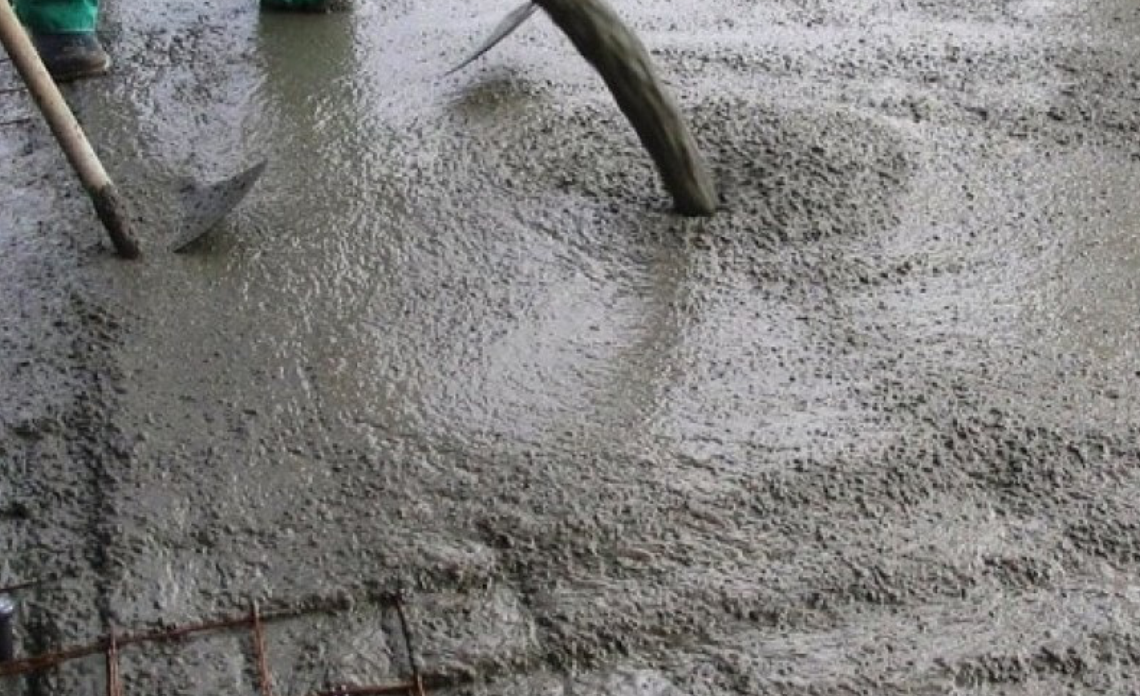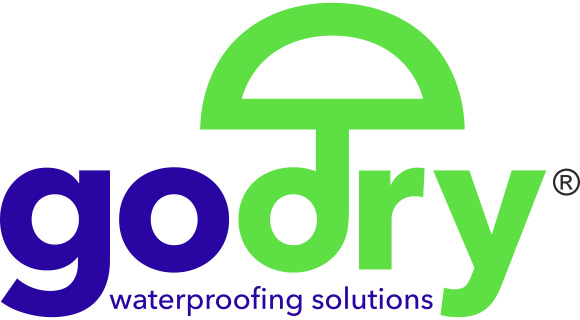Concrete is a common building material in almost all civil constructions due to its unique engineering properties. The strength of the concrete is highly dependent on the hydration reaction between the water and cement. Despite, water can also be destructive to a concrete in excess quantities. Adding more water is likely to reduce the strength of the concrete, causing cracks, water seepage and so on. Thus appropriate solutions are necessary in order to reduce water requirement in a concrete for strong and safe structures.
Water to cement ratio (W/C)
In concrete mix design, the ratio of the amount of water (by weight) to the amount of cement used (by weight) is called the water to cement ratio (w/c). Based on the exposure conditions and requirements, the w/c ratio is chosen. The w/c ranges from 0.4 to 0.6. Higher the aggressiveness of the environment lower should be the w/c ratio.
When we consider 0.4 as w/c ratio
Quantity of water = 0.4 x 50 = 20 Liters (1 bag cement = 50 Kg)
So the required quantity of water is 20 Liters per cement bag.
The below table shows the w/c ratio according the exposure and type of concrete used.
| S. No. | Exposure | Plain Concrete | Reinforced concrete | ||||
| Minimum cement content kg/m3 | Maximum free water-cement ratio | Minimum grade of concrete | Minimum cement content kg/m3 | Maximum free water-cement ratio | Minimum grade of concrete | ||
| 1 | Mild | 220 | 0.6 | – | 300 | 0.55 | M 20 |
| 2 | Moderate | 240 | 0.6 | M 15 | 300 | 0.5 | M 25 |
| 3 | Severe | 250 | 0.5 | M 20 | 320 | 0.45 | M 30 |
| 4 | Very Severe | 260 | 0.45 | M 20 | 340 | 0.45 | M 35 |
| 5 | Extreme | 280 | 0.4 | M 25 | 360 | 0.4 | M 40 |
Note
Cement content prescribed in this table is irrespective of the grades of cement. The additions such as fly ash or ground granulated blast furnace slag may be taken into account in the concrete composition with respect to the cement content and water-cement ratio if the suitability is established and as long as the maximum amounts taken into account do not exceed the limit of pozzolona and slag specified in IS 1489 (Part 1) and IS 455 respectively.
Source: IS 456 (2000): Plain and Reinforced Concrete – Code of Practice
How rise in humidity levels affect concrete strength?
Higher W/C ratio = lower compaction
Controlled use of water in concrete is necessary for a durable structure. But in order to get sufficient workability, excess quantity of water is added. The water that is not consumed during the hydration reaction is known as free-water. It will retain in the concrete even after hardening. As free-water tend to escape into the atmosphere, it develop voids filled with air. The resulting inadequate compaction lowers the concrete strength.
Carbonation – a threat to concrete
Carbonation is a process where carbon-di-oxide from atmosphere penetrates into the concrete structure through pores and reacts with calcium hydroxide in the concrete. This lowers concrete’s pH, thereby affecting its ability to hold components together. As the damage develops further, it corrodes steel. As steel corrodes, it expands in size that eventually weakens the concrete resulting in cracks. Lower pH also increases the temperature. Rise in temperature allows the concrete to dry faster, thus leaving the structure more porous and weak.
Dampness and Microbial growth
Dampness, the unwanted moisture of a building is caused as water enters into pores and cracks. Excess humidity and porous concrete act as a perfect breeding ground for molds. It does affect the aesthetics of the house and also its structural integrity. The unwelcoming effects of water ingress such as leaky walls & ceilings, mold formation, short-circuit of electrical fittings put a big question mark on the health & safety of inhabitants too.
So, how could your concrete strength be improved?
Water-tight concrete!
The permeability of concrete can be reduced to enhance its water-tightness, that is, its “waterproofing” performance. Here comes integral waterproofing solution! Integral waterproofing admixtures increases the durability of the concrete structures by mitigating ingress of water and stops further adverse effects of leakage. This kind of waterproofing is directly added to the concrete during construction stage itself.
GODRY UNIPROOF – Your concrete’s shield
GODRY UNIPROOF is the Best-in-class integral waterproofing admixture manufactured by VNC Group. GODRY UNIPROOF minimizes the water permeability and increases the waterproofing properties of concrete and sand-cement mortars. It also reduces the water-demand and improves the cohesiveness, workability, and durability of concrete and plaster mixes.

Advantages of using GODRY UNIPROOF
- Concrete mixed with GODRY UNIPROOF reduces water requirement in the mix design. Therefore, water addition should be reduced up to 15% or more.
- Dosage of GODRY UNIPROOF is 125 ml per 50 kg bag of cement, whereas other competitor brands require 200 ml per bag of cement. Thusly, GODRY UNIPROOF’s lower dosage gives you 35% savings, compared to other brands.
Waterproofing is a fundamental step in every construction as it delivers resistance against ingress of water and associated damages. As GODRY UNIPROOF being more economical and very effective, one can definitely afford to use in all sorts of construction and protect the beauty of the house for years to come.


